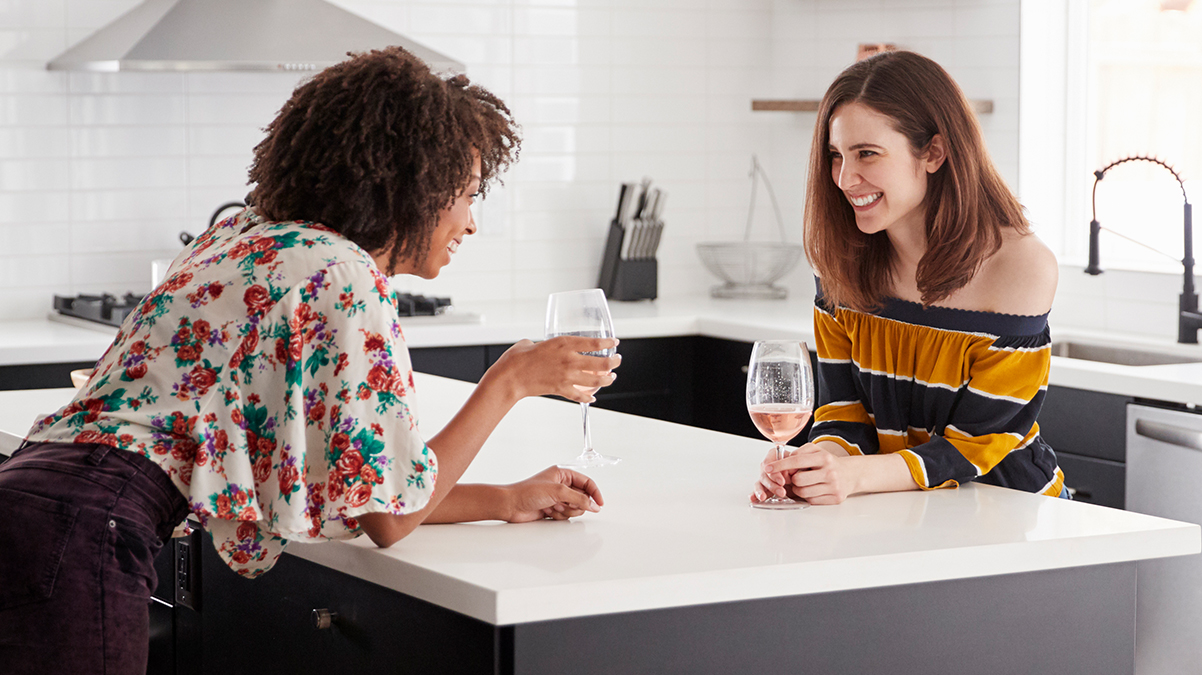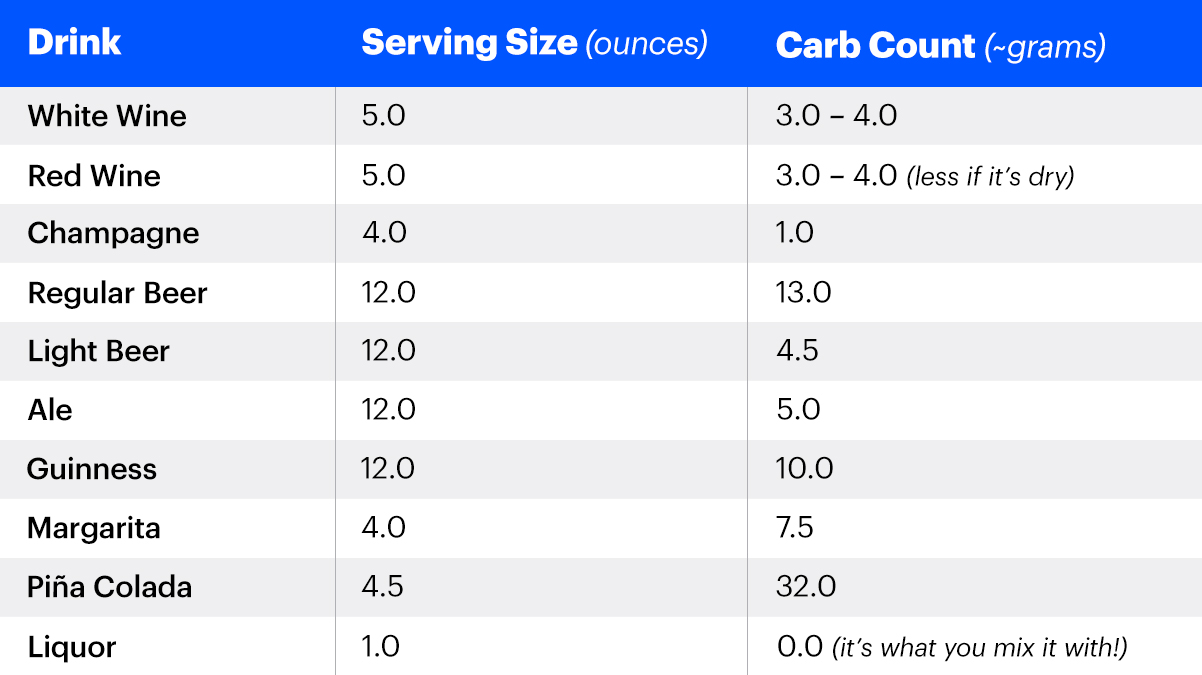What You Need to Know About Type 1 Diabetes and Alcohol

To put your first question to rest, the answer is yes. You can drink alcohol with type 1 diabetes! Of course, like anyone with or without type 1, it’s still important to monitor how much you have to drink. The recommended daily intake — for everyone, whether they have type 1 diabetes or not — is no more than two drinks per day if you are a man or one drink per day if you are a woman.
Having diabetes means that in addition to consuming responsibly, you will also need to understand the effect of alcohol on blood sugar and keep an eye on it while drinking.
How Does Alcohol Affect Your Blood Sugar?
Moderate amounts of alcohol may cause blood sugar to rise, excess alcohol can actually decrease your blood sugar level – which can be dangerous for people with T1D. People with T1D should only drink while eating food.
Beer and sweet wine contain carbohydrates and may raise blood sugar. People may overeat when drinking alcohol which also can increase your BG. Always wear a medical alert piece of jewelry that says you have diabetes. And in an emergency glucagon may not work so tell people to call 911 (your liver is busy filtering alcohol so the glucagon may not work).
Talk to your doctor about drinking with type 1 diabetes and ask if they would recommend any changes to your routine. Also discuss any medications you are taking and how that might impact the effects of alcohol.
Tips for Drinking Safely with Type 1 Diabetes
Now that you are aware of the interaction between blood sugar and alcohol, you’re ready to make a game plan. Whether it be a birthday party, a football night or something else, these tips will help you be prepared for any occasion where you may consume alcohol:
Know the signs of low and high blood sugar: Let your friends know about how alcohol impacts your body when you have type 1 diabetes, and go over the signs of hypo- and hyperglycemia. Make sure they can spot the signs of low blood sugar and know to call 911 immediately if you have trouble eating or become unresponsive. If you use a continuous glucose monitor (CGM), consider sharing your data so that your friends can help track your levels.
Don’t forget to eat: Always drink alcohol on a full stomach or eat while you are drinking. Before bed, have a snack high in protein and fat. You may want to set an alarm for a few hours after you go to sleep to check your blood sugar in the middle of the night.
Adjust your insulin dosing as needed: Discuss with your doctor or endocrinologist about how different types of alcohol affect your blood sugar and consider making changes to your insulin dosing before, during and after drinking alcohol.
Plan ahead for cardio: If you anticipate that you’ll be dancing, running around or anything else that may raise your heart rate, you might want to prepare for a drop in blood sugar. Plan ahead by decreasing your basal insulin (long-acting) dose if you wear a pump, or eating extra carbohydrates.
Switch it up: You may want to alternate between alcohol and water or another non-alcoholic beverage, it will keep you hydrated and is an overall good tip whether you have T1D or not.
When Choosing Your Drink, Be Mindful of Carb Counts
In general, alcohol drops blood sugar, but sugars already present in your drinks can increase it. That’s why it’s important to pay attention to the carbohydrate count in your drinks. Knowing the effect of alcohol on blood sugar, people often stick to drinks that have a lower alcohol sugar content in order to avoid a high. Use these estimated carb counts of popular drinks to help guide you — but always check the label of your drink or use a carb counting app.
